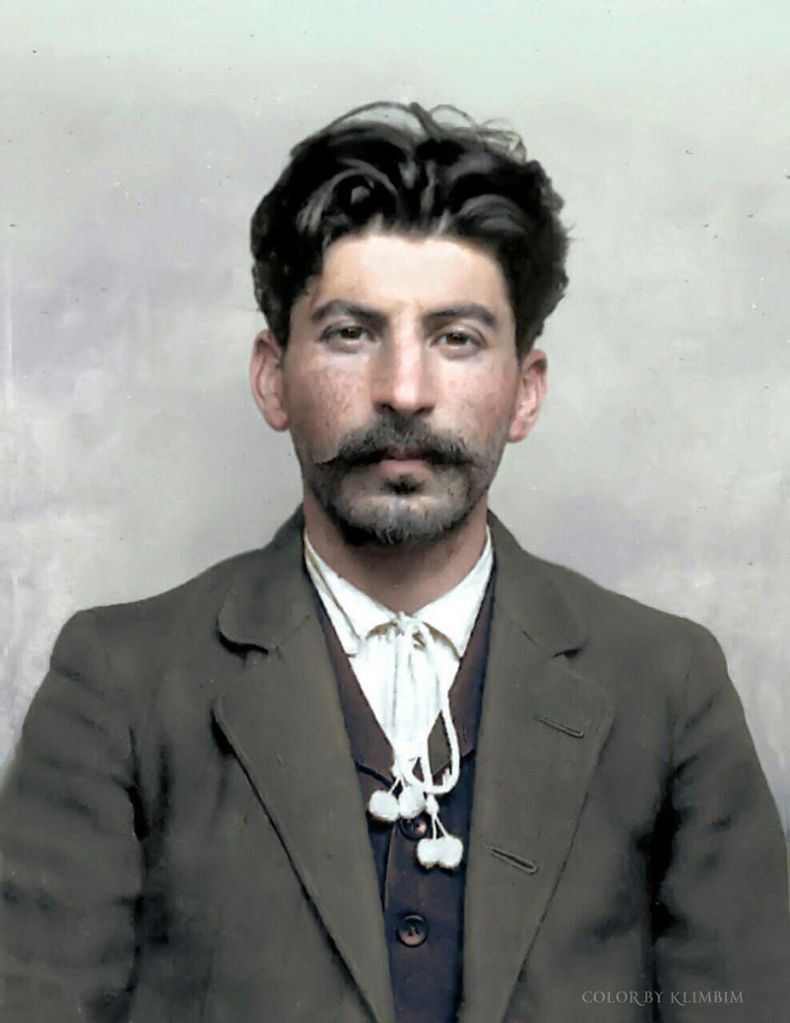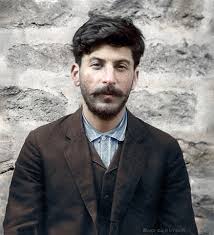‘It was because his opponents significantly underestimated him that Stalin was able to
win the power struggle in the years 1924 to 1929.’
Explain why you agree or disagree with this view.
It has been loosely accepted by some western historians that Stalin was either a mediocrity, or perhaps someone who posed as a mediocrity, merely for Machiavellian impact. However, although his victory in the power struggle was, in part, caused to an extent by his opponents underestimating him, it was also caused by his organisation, his raw political acumen and his unswerving personal ambition.
One of the core factors behind historians in the west believing Stalin to be a total mediocrity rely on quotes from his political enemies: “Stalin,” recalls the Menshevik politician Nikolai Sukhanov in his memoirs of the Russian Revolution of 1917, “gave me the impression…of a grey blur which flickered obscurely and left no trace. There is really nothing more to be said about him.”
However, this overused quote is highly subjective as it is sourced from a Menshevik — a political party who rivalled the Bolsheviks until they were purged from the USSR after the 1921 Kronstadt Uprising. Also, Stalin himself was personally responsible for the violent destruction of the Georgian Menshevik movement, so Sukhanov’s quote is mired in subjectivity and comes across like a propaganda piece.
The truth was that Stalin was able to present himself as a man of reason, a moderate, a non-factional option amongst the egos mired in infighting. Trotsky, though the ‘heir apparent’ was, like many great men, destroyed by his own hubris. Despite his towering intellect and clear ability as a man of action (he had, after all, organised the October Revolution and played an important role in the victory of th Russian Civil War), his ability to alienate key party members, such as Kamenev and Zinvoviev led to his ultimate failure. A more prudent strategy on Trotsky’s part would have been to build a binding alliance with them, but he only did so when it was too late — Stalin completely outmanoeuvred Trotsky.
Trotsky was the heir apparent to Lenin, and was viciously attacked and besmirched by Zinoviev and Kamenev, whilst he did the same to them.
Of Stalin, Trotsky was utterly dismissive, failing to sense Stalin’s political genius: “he seemed a man destined to play second and third fiddle.” This quote would seem to corroborate the notion that Stalin’s opponents significantly underestimated him and that this indeed led to his victory in the power struggle.
However, once again, this source is written by one of Stalin’s avowed enemies, and is therefore riddled with bias. Trotsky’s tone appears to be that Stalin became the unquestioned leader of the USSR, not because of his own qualities, but because of Trotsky’s mistakes. This could not be further from the truth.
Stalin was a bank-robbing, kidnap-ransoming, poetry-writing, Georgian born son of an alcoholic shoemaker. He wrote and edited the Communist newspaper, Pravda and contributed to communist theory with his article Marxism and the National Question was first published in the March, April, and May 1913 issues of the Bolshevik journal Prosveshcheniye; Lenin was pleased with it. According to Montefiore, this was “Stalin’s most famous work”. Though not comparable with Trotsky, or nor indeed Zinoviev, Stalin was highly literate and displayed an able mind.
It is also arguable that Stalin’s role as a revolutionary was as a hard man, doing the unsavoury side of the role, rather than merely penning florid Marxist theory. After all, what could be more practical and marxist than robbing a bank to fund a revolution?
Moreover, Stalin was able to develop a truly underworld and proletarian network; a network whose unquestioned loyalty he was able to call upon when Lenin’s death caused the power vacuum and struggle. As the General Secretary of the Bolshevik Party, Stalin was able to flood a lot of strategic positions with men, and women, who owed their loyalty to him. This is of high significance, as the Bolshevik Party was broadly composed of two different types of men. Firstly, there were the Bourgeois, highly educated class of Party Members, highly versed in Marxist philosophy — men like Zinoviev and Trotsky. Secondly, there were less intellectual but authentically proletarian members. It is these proletarian members who Stalin appointed into strategic positions as General Secretary; these were citizens of the USSR who had no power in the old regime under the Tsar and who would be very appreciative to hold power in this revolutionary government.
Nonetheless, Stalin was appointed to this position because his opponents significantly underestimated him. Both Bukharin and Zinoviev could not tolerate each other in such a position but were mutually happy to have Stalin in such a position, as they did not regard comrade Koba with his genial manners and basic Georgian persona as a threat. Nevertheless, Stalin exploited this position for its maximum impact, creating a vast network within the Bolshevik government.
This was of crucial significance, as Stalin was able to be a moderate, advising against factionalism, whilst his opponents destroyed each other’s reputations.
Whilst Stalin’s personality is oft debated (he was notoriously rude, even to Lenin’s wife on occasion, but he was also genial and friendly), it is evident that his comrades did underestimate his opportunism, his ability to manipulate, organise, orchestrate, but mostly, they either underestimated, or turned a blind eye towards, his utter ruthlessness.
One notable example to the otherwise was Lenin’s wife and widow, Nadezhda Krupskaya nd quite probably, Lenin himself. Indeed, she ensured that Lenin’s last will and testament (if it was written by him), was sent to the Politburo for safekeeping and a critique. However, despite the fact that the wording was most scathing towards Stalin, it was also critical of Kamenev and Zinoviev, Trotsky and Bukharin. As these were all candidates for leadership, none of them were keen for it to be published, and as they underestimated dear comrade Koba at this point, Stalin escaped his recommended fate.
This allowed Stalin to present himself as a symbol of continuity from Lenin onto his regime. Whilst this lacked truth, the leadership cult Stalin manifested was in part due to the fact that his rivals collectively censored Lenin’s last will and testament. Moreover, as Stalin had maintained a lot of contact with Lenin during his illness, and as he attended Lenin’s funeral as a pallbearer (unlike Trotsky who was riddled with influenza), the narrative Stalin spun was far more sanitised and appealing to party members.
Evaluating a range of arguments, Stalin was able to win the power struggle due to his opponents underestimating him to a large extent. Nonetheless, it was the very qualities that he was underestimated upon that led to his success. Simon Montefiore, Stalin’s biographer, asserts that “Stalin was never average”. The fact that his political opponents couldn’t see him for what he truly was may have been their weakness, or it could have been a masterstroke by Stalin. Nonetheless, he was able to present himself as a moderate, or stood against factionalism, whilst his political opponents destroyed each other. He was able to use his position as General Secretary to create an amazing network within the Bolshevik Party and he was willing to be utterly ruthless when his opponents dithered.



Leave a comment